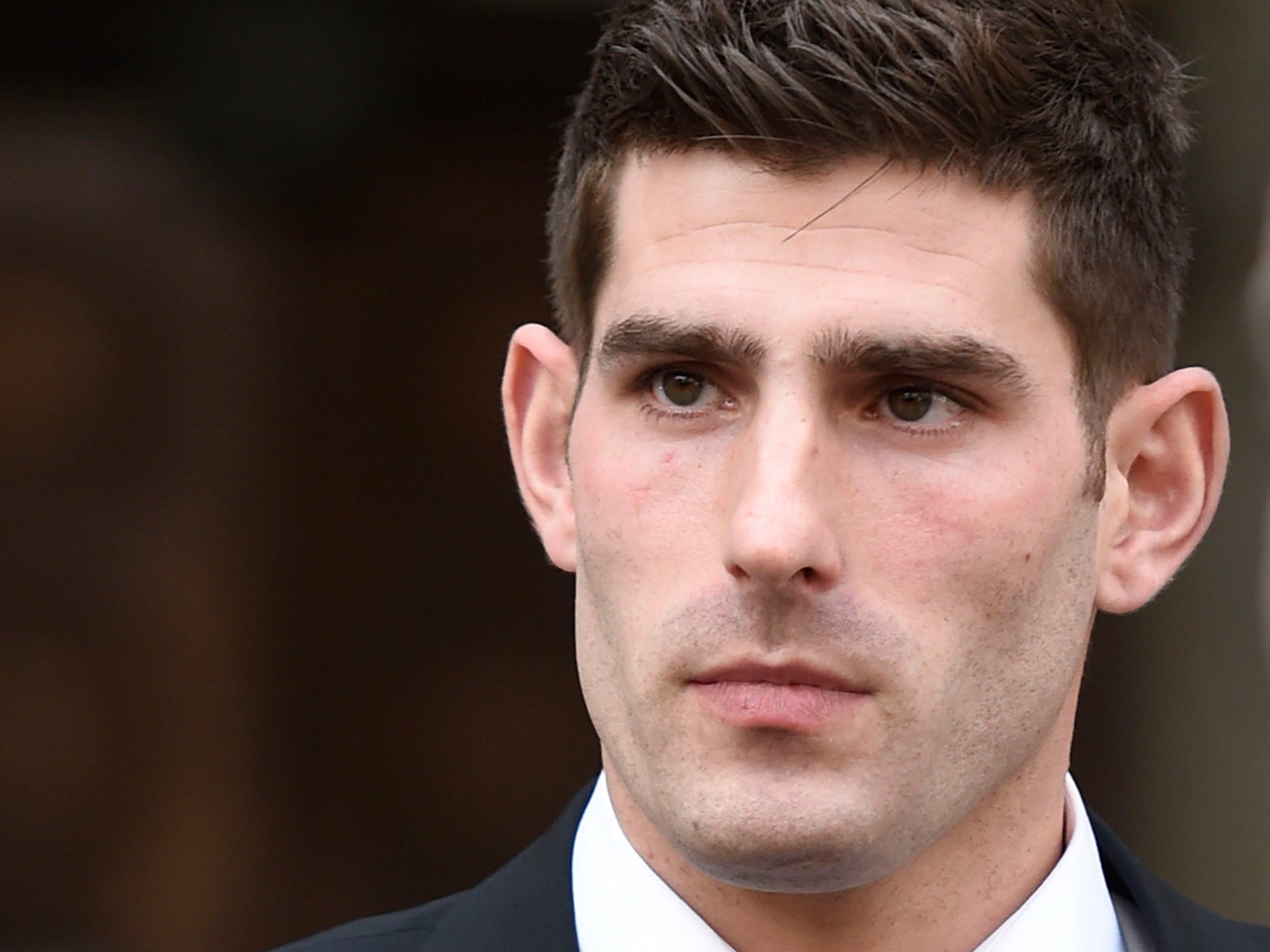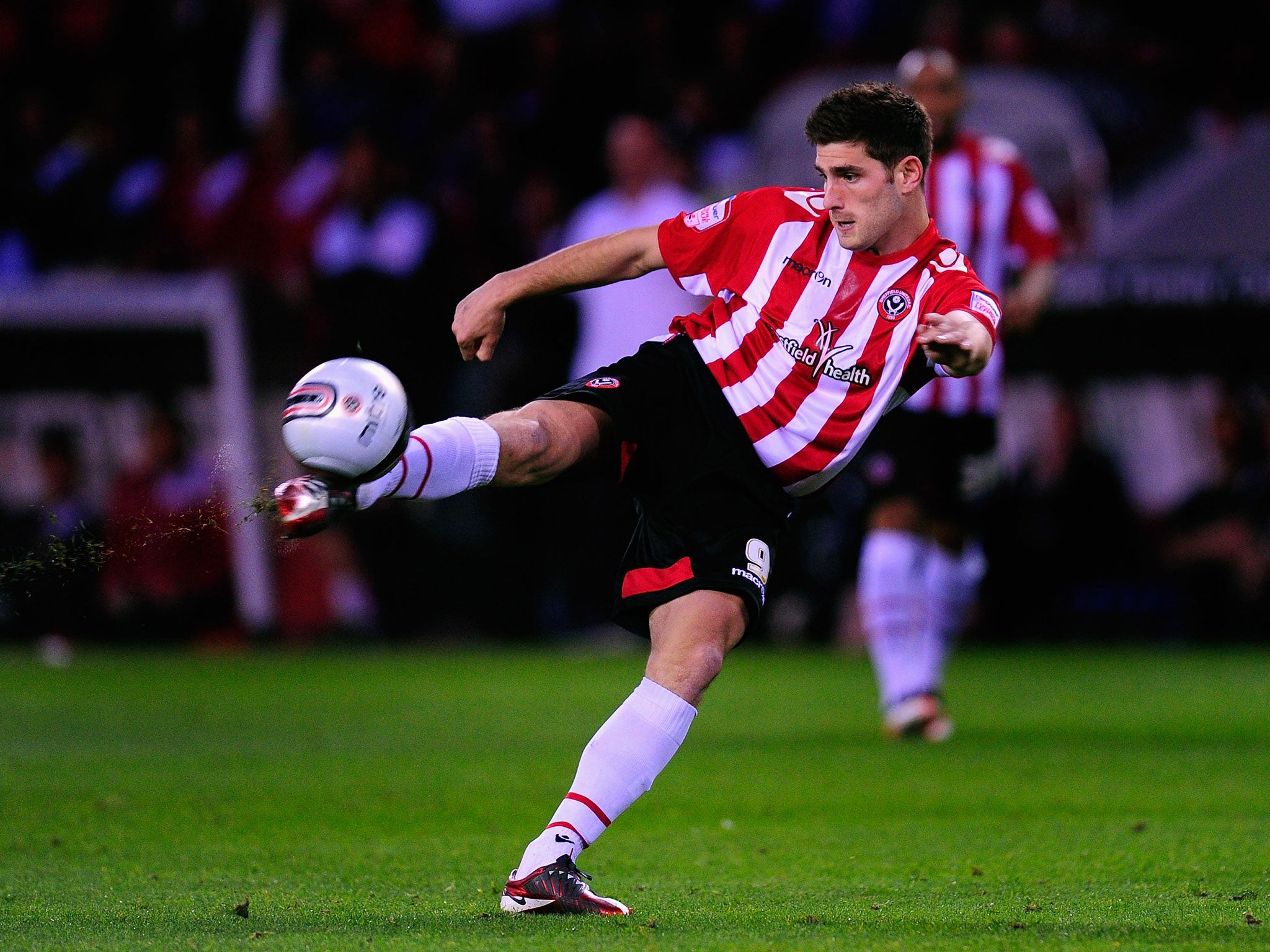Ched Evans: D-day for disgraced footballer as Court of Appeal considers rape conviction
With a decison due this week, Ian Herbert wonders whether the 27-year-old will learn some humility regardless of the result

For a player whose high points in football have been a second-half hat-trick for Sheffield United against Chesterfield four years ago and one of the six goals Manchester City scored against a desperately poor Portsmouth side some time before, Ched Evans has an extraordinarily high profile.
Everyone knows the name and on Thursday the Court of Appeal rules on the case that has placed him into the national consciousness: his conviction four years ago for the rape of a young woman, at a hotel three miles from the North Wales coast.

Football will be searching its soul again when it finds out whether or not the evidence submitted in last month’s two-day hearing – which, because of a ruling, cannot be reported – will result in his conviction being overturned. If his appeal is successful, Evans’s name will be added to the list of individuals whose appeals have been won when referred back by the Criminal Cases Review Commission – a whopping 70 per cent of cases referred back have succeeded on appeal.
Those Court of Appeal rulings that find a conviction to have been wrong are often greeted with a complicated kind of delight: the sense of justice done tempered by the years of denied liberty. Not so with Evans – and a story about an air pistol with a telescopic sight reveals why. The family with whom he lodged during his time at Manchester City became conscious of the long hours of inactivity in the young player’s life; which he filled one day by purchasing the air pistol and taking aim at their son. The bullet, allegedly fired as a joke, lodged in the boy’s groin, in a position where the proximity of arteries persuaded doctors to leave it.
The mindlessness extends to the conduct we have seen enacted on behalf of Evans’s during attempts to clear his name – and in his willingness to allow a website to publish the vilest declarations of his innocence. Its worst statements were removed several days after The Independent drew fresh attention to them, though the ugliness of them still really has known no bounds. Beyond blurred footage of the victim, there were the images of a pink Mini Cooper and a sunshine island to illustrate what it suggests were the motivating factors for her.
The difficult balance for anyone in Evans’s position to establish is between proclamation of innocence and decency. How can there be an apology from someone who, in his own mind, has committed no crime? Yet if those who were motivated to publish had not been so blinded by their hatred, they might have been able to see that there was a civilised way for Evans to pursue his claims of innocence, enshrined in the law.
There has been a less publicised side to the efforts to demonstrate justice. In the early days after Evans’s conviction, the freelance investigative journalist Don Hale was quietly sought out by the player’s family to begin some of the evidence-gathering that may prove significant on Thursday. It was typically thorough work by Hale. He worked in the same painstaking way to secure new witness statements when he secured a re-examination of the case of Stephen Downing, the 17-year-old council worker convicted in 1974 of the murder of a legal secretary at a graveyard in Bakewell, Derbyshire. Downing was acquitted by the Court of Appeal in 2002.
If he is acquitted, Evans’s chances of genuine rehabilitation are contingent on the same quiet dignity that his professional advisers have prescribed. There needs to be a sense that these past four years have taught him something about humility and remorse. These are concepts within his reach, whatever the intellectual faculty. It would be enlightening to learn that Evans wanted to use this experience, and his profile, to visit schools and educate young men in matters of sexual consent. It would be surprising to find that mention of the young woman in question has no part in what he might say. And of course, the website must go.
If an aquittal does occur, some fundamental principles would be at stake: the right in this country to challenge conviction; the recognition that mistakes happen within the judicial system, and the acknowledgement that any individual, however unsympathetic, is entitled to start again in such circumstances. Evans served two and a half years behind bars, but it has been a four-year stretch where his chosen career is concerned. He was 23-years-old with promise when he left the arena, on conviction. If he returns now, he will be a 27-year-old approaching the last stretch of his playing days. If the court says Evans is innocent, then he must be free to take the chance, with those who wish to employ him entitled to do the same. Then it will be for Evans to discover if he can locate the humility that might bring a deeper, longer-lasting kind of redemption: the kind that goals on a football field never will.
Bookmark popover
Removed from bookmarks